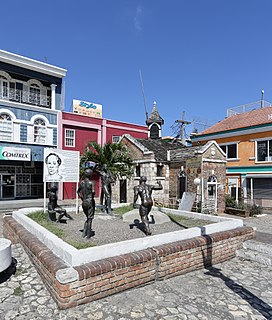A Quote by Edward Gibbon
In the second century of the Christian era, the Empire of Rome comprehended the fairest part of the earth, and the most civilised portion of mankind. The frontiers of that extensive monarchy were guarded by ancient renown and disciplined valour. The gentle but powerful influence of laws and manners had gradually cemented the union of the provinces. Their peaceful inhabitants enjoyed and abused the advantages of wealth and luxury.
Related Quotes
At the hour of midnight the Salerian gate was silently opened, and the inhabitants were awakened by the tremendous sound of the Gothic trumpet. Eleven hundred and sixty-three years after the foundation of Rome, the Imperial city, which had subdued and civilised so considerable a part of mankind, was delivered to the licentious fury of the tribes of Germany and Scythia.
To the Jews, Rome constituted the quintessence of all that was odious and should be swept away from off the face of the earth. They hated Rome and her device, arma et leges, with an inhuman hatred. True, Rome had leges, laws, like the Jews. But in their very resemblance lay their difference; for the Roman laws were merely the practical application of the arma, the arms...but without the arms, the leges were empty formulae.
If Jesus remained dead, how can you explain the reality of the Christian church and its phenomenal growth in the first three centuries of the Christian era? Christ's church covered the Western world by the fourth century. A religious movement built on a lie could not have accomplished that....All the power of Rome and of the religious establishment in Jerusalem was geared to stop the Christian faith. All they had to do was to dig up the grave and to present the corpse. They didn't.
History is made of empires, and the United States was by far and away the greatest, richest, and fairest empire that had every dominated the earth. Inevitably, it would fall. Empires always did. But we were lucky, you said. We got to participate in the most fascinating social experiment ever attempted.
All the entertainment and talk of history is nothing almost but fighting and killing: and the honour and renown that is bestowed on conquerors (who for the most part are but the great butchers of mankind) farther mislead growing youth, who by this means come to think slaughter the laudable business of mankind, and the most heroic of virtues.
Since the building of Constantinople, and the removal of the seat of government to that city, no political quarrel separated Rome from Egypt. Pagan Rome, ever since the union of the two countries under Augustus, except when interrupted by the rebellions, had been eagerly copying the superstitions of Egypt, and Christian Rome still followed the same course.
In the older view the goddess Universe was alive, herself organically the Earth, the horizon, and the heavens. Now she is dead, and the universe is not an organism, but a building, with gods at rest in it in luxury: not as personifications of the energies in their manners of operation, but as luxury tenants, requiring service. And Man, accordingly, is not as a child born to flower in the knowledge of his own eternal portion but as a robot fashioned to serve.



































